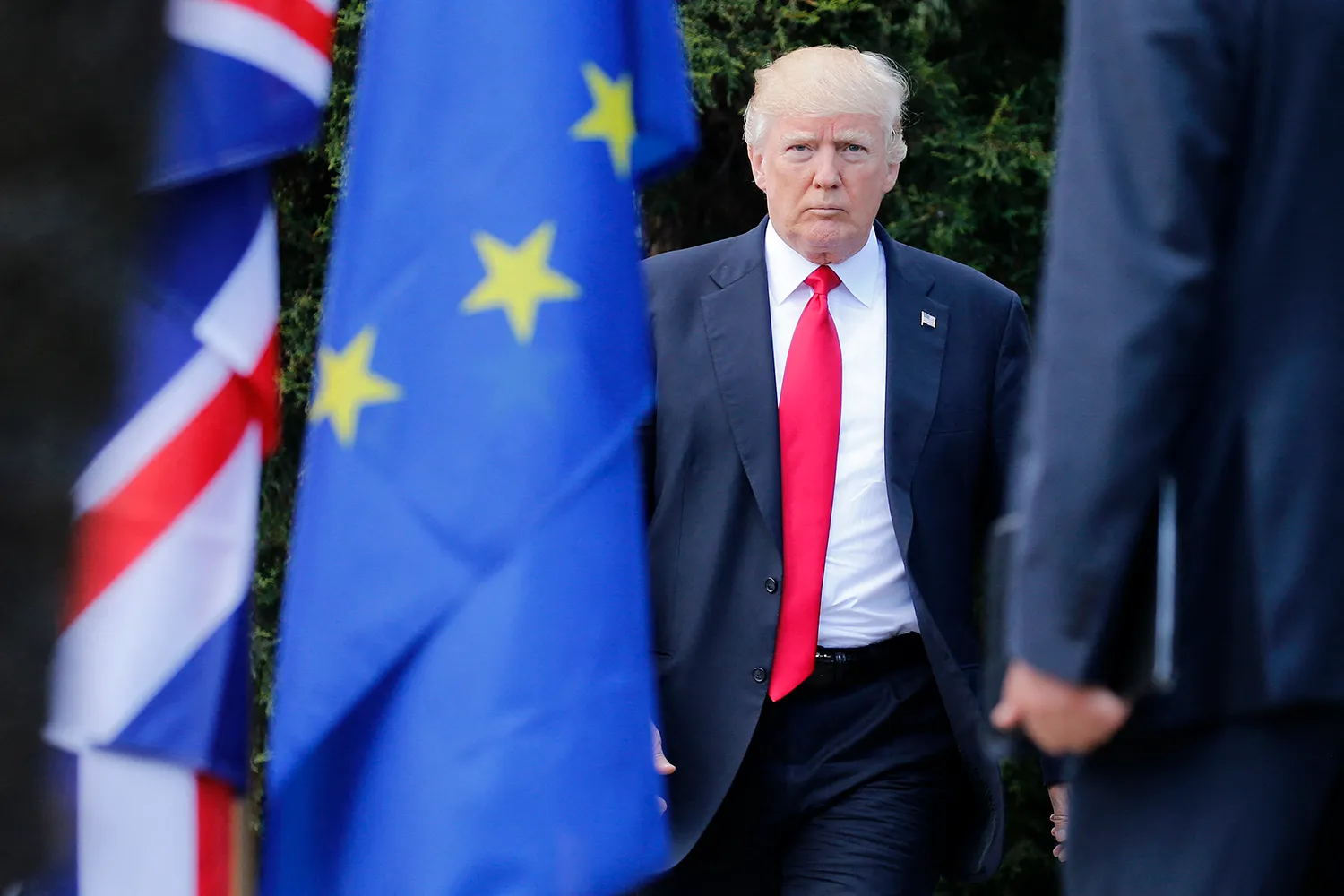At the World Economic Forum in Davos, Switzerland, former President Donald Trump reignited debates over EU trade and defense by criticizing European trade practices and urging higher military spending. His fiery remarks emphasized what he called “unfair” European trade policies, particularly regarding U.S. farm products and cars. Trump also renewed his call for across-the-board tariffs on companies producing outside the United States. While his comments reflect longstanding grievances, they come at a time when Europe is grappling with trade and economic challenges.
Trump’s Criticism of European Trade Practices
During his video address, Trump claimed that Europe imposes barriers on U.S. farm products and cars, contributing to substantial trade deficits with the European Union (EU). “They don’t take our farm — essentially don’t take our farm products,” he said. “We have hundreds of millions of dollars of deficits with the E.U., and nobody’s happy with it.” While Europe does import goods like American cars and agricultural products, Trump argued it falls short compared to its exports to the U.S.
This aligns with growing tensions highlighted in the EU Trade Balance Report. The report shows the EU recorded a €14.3 billion trade surplus in goods with non-EU countries in November 2024, supported by strong exports of chemicals and manufactured goods. However, Trump’s comments spotlight the challenges of addressing trade imbalances between the U.S. and EU without escalating conflicts.
Tariffs as a Bargaining Chip
Trump doubled down on his promise to implement tariffs on companies not manufacturing in the U.S. While such measures may resonate with domestic audiences, they risk exacerbating trade tensions with Europe. EU leaders have taken a cautious approach, with European Commission President Ursula von der Leyen emphasizing a willingness to negotiate and address mutual concerns. At the same time, officials like Teresa Ribera have warned against trading one dependency, such as Russian gas, for another, such as American liquid natural gas.
The EU’s efforts to maintain trade surpluses, detailed in the trade balance report, suggest that it will continue to prioritize its economic interests in negotiations. Any moves toward tariffs could disrupt this balance and strain transatlantic relations further.
Calls for Increased Defense Spending
Trump also urged NATO members to increase defense expenditures to 5% of GDP, far above the current 2% target. While European leaders broadly agree on boosting defense spending, such a significant increase is seen as unrealistic. NATO’s new head, Mark Rutte, reiterated the importance of supporting Ukraine while maintaining realistic defense goals.
This push for defense spending ties back to the EU’s trade and economic priorities. As highlighted in the trade balance report, Europe is already dealing with pressures to stabilize its internal markets. Redirecting resources to defense could complicate efforts to address declining intra-EU trade, which fell by 7% in November 2024 compared to the previous year.
Ukraine and the Global Trade Context
Trump’s remarks on Ukraine added another layer of complexity to the discussions. He claimed Ukraine is ready to “make a deal” to end the war with Russia, a statement met with skepticism by European leaders. President Zelensky’s call for a “just end” to the war, including NATO membership, remains far from feasible given Russia’s unwillingness to negotiate.
The ongoing conflict has had significant economic implications, including disruptions to trade flows and energy supplies. The EU’s efforts to diversify energy imports and reduce reliance on Russian supplies have been a recurring theme in its trade strategy. As noted in the trade balance report, the EU’s surpluses in chemicals and manufactured goods have helped offset energy challenges, but these efforts remain fragile in the face of geopolitical uncertainty.
Conclusion
Trump criticism of EU trade practices and his calls for higher defense spending highlight enduring transatlantic tensions. While the EU Trade Balance Report showcases the bloc’s efforts to maintain trade surpluses and navigate economic challenges, Trump’s rhetoric underscores the fragility of these achievements. Future negotiations will need to strike a balance between addressing trade deficits, ensuring fair market access, and maintaining economic stability.
For the EU, the path forward will require careful diplomacy to protect its trade interests while navigating geopolitical complexities, including its relationship with the U.S. and ongoing support for Ukraine.





